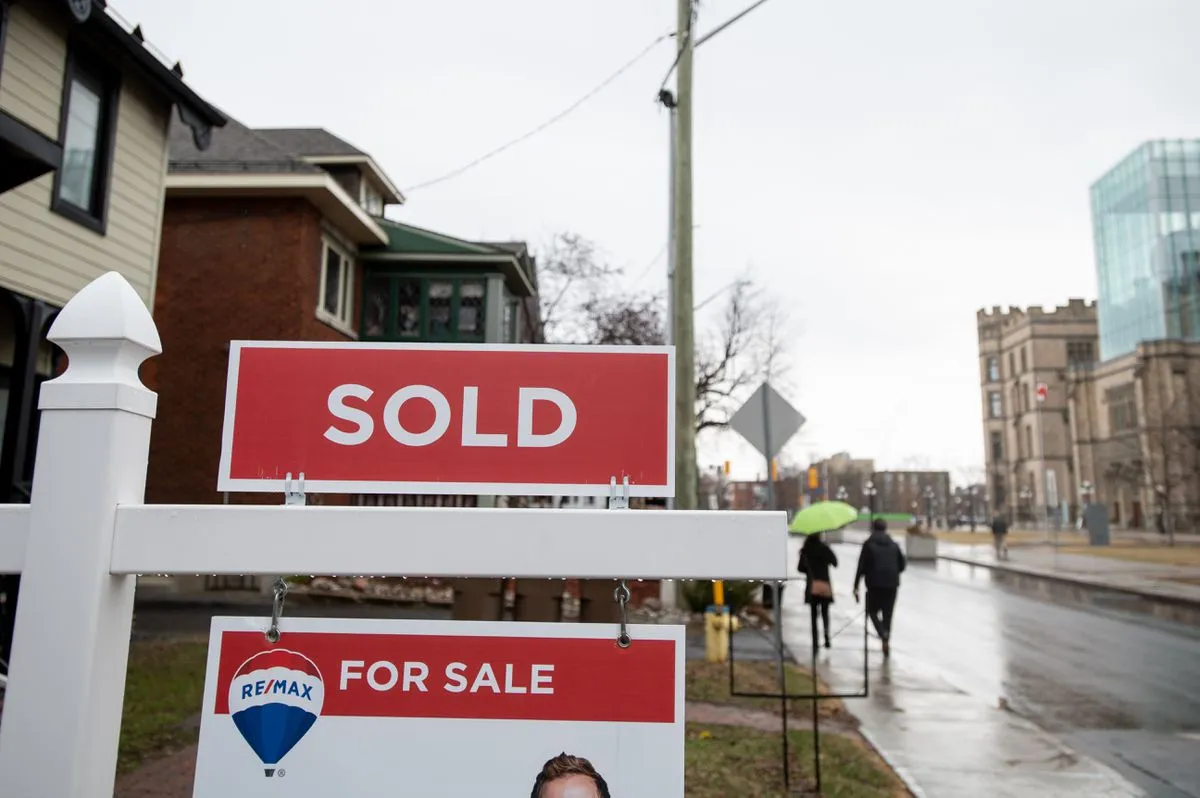The guy who runs Generation Squeeze says building more homes isn’t enough to lower prices, because most people buying houses are already property owners. Property owners can either sell their current house to get a load of cash, or borrow against it to get a load of cash. Either way, they can pay a lot for their next property.
As evidence, he mentions that Alberta has less supply per capita than the rest of the country, but house prices are half those of Ontario and BC.
Here are the good bits:
While building more supply is absolutely important, setting ambitious targets does little good if property values continue to rise. Unless they are deeply subsidized by tax dollars, new market units will price in today’s high land values – which have soared well beyond what most can afford with local earnings whether the new homes are intended for renters or owners.
Plus all the focus on “Build! Build! Build” ignores that lack of supply isn’t the only, or even primary, factor influencing the price of rent and ownership. You could be forgiven for thinking otherwise, since undersupply has become the dominant narrative shared by Canada Mortgage and Housing Corp. and a variety of financial institutions.
The Bank of Nova Scotia, for instance, published reports lamenting that Canada has a smaller number of private dwellings per capita than the G7 average, blaming this ranking for much of our unaffordability problem. This leap in logic begs questions, since the same Scotiabank data also show that Alberta has lower levels of housing supply per capita than most other provinces, yet home prices in Alberta are about half as expensive as those in Ontario and B.C.
…
Mr. Pomeroy [who published a study about this stuff] encourages us all to widen our focus to include the vicious cycle by which rising home prices drive rising home prices.
First-time homebuyers are a minority of purchasers. They compete with many Canadian buyers who have already owned in the market. Bolstered by the equity they’ve gained from surging home values, existing homeowners bid up the price of housing to levels that are disconnected from earnings paid by local jobs. This was especially true prior to recent interest-rate hikes, because historically low interest rates made it cheap for homeowners to liquefy wealth windfalls created by skyrocketing home values.
Some homeowners bid up the price of housing simply to relocate. Others do so to purchase an investment property in search of additional wealth windfalls.
The latter are among the one in six Canadian homeowners who own multiple properties. Most are over the age of 55. To pay the mortgages on their investment properties, they increasingly collect rent from younger residents with dashed dreams that a good home should be in reach for what hard work can earn.
This reveals that the vicious cycle by which those enriched by high home values bid housing costs ever higher isn’t just ruining the market for aspiring owners. It is also breaking the rental market, as confirmed by the record-high rents reported this summer.
To disrupt this vicious cycle, political leaders must help break Canada’s cultural addiction to rising home prices by endorsing the plan that governments will use all available policy tools to stall home prices for the foreseeable future.



@Dearche Please read what I said closer. “a focus on growth of smaller cities into larger ones” - we’ve concentrated and are having the greatest housing crisis in Vancouver, Toronto, etc. There is room to grow and it’s totally reasonable to do so in places like Kamloops, Grande Prairie, etc. (my experience being western Canada).
Larger centers DO need to grow upwards. Those are permitting issues primarily, and I agree that needs to be fixed, also as stated.
I saw that bit, but the reason why I didn’t really mention it is because people tend to chose to live where the money is at, and that’s the big cities. I know how just saying that is a bit condescending towards small cities, but the fact of the matter is that it’s the big cities that are having the biggest housing problems (though I admit they’re not the only ones). Small cities have little issue doing the same mistake that big cities have been making the last hundred years as they haven’t reached a critical mass yet, and you can argue that it’s the small city charm of being more spread out, even if it gives them a massive economic disadvantage.
But the problem for big cities is that by spreading out, they swallow up and destroy small cities. That wouldn’t be much of a problem if development didn’t cause people who work in the big cities to start living in those small cities just to have a place of their own. I knew people who worked in Toronto, yet lived in Barrie, and from what I can tell, a significant percentage of people in Barrie do the same. The same goes for those who live in closer cities around Toronto, but I point out Barrie specifically because it’s over 100km away from Toronto, yet still suffers from this problem.
It’s the big cities that need to fix up their act when it comes to housing, not the small cities, as the small cities need to concentrate more on improving their economic activities. I do admit that they can do both at the same time, but creating a hearty downtown core should be the priority for them, or else they’ll forever just be the backyard of bigger cities that offload their housing crisis onto the small cities.